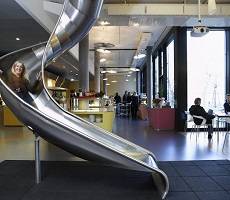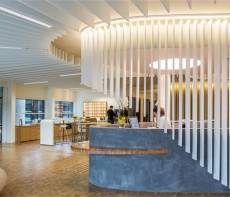June 6, 2014
IFMA & BIFM to discuss work and place at Workplace Strategy Summit
 Leading academics and experts in the fields of facility management and real estate are meeting to discuss the most innovative concepts to emerge in workplace strategy at the Workplace Strategy Summit, beginning this weekend at the Wokefield Park Conference Centre in Berkshire. The International Facility Management Association (IFMA), British Institute of Facilities Management (BIFM) and IFMA Foundation will come together from 8-10 June to discuss the themed “Innovation on the Edge.” The editorial team at Workplace Insight has produced a special issue of the Occupiers Journal, Work & Place featuring in depth articles, case studies and comments from some of the key speakers at the event. Paul Carder, publisher of Work & Place said: “As well as the journal’s obvious relevance to the creators and managers of places we were also keen to find subjects which are equally relevant to managers of the “work” process.”
Leading academics and experts in the fields of facility management and real estate are meeting to discuss the most innovative concepts to emerge in workplace strategy at the Workplace Strategy Summit, beginning this weekend at the Wokefield Park Conference Centre in Berkshire. The International Facility Management Association (IFMA), British Institute of Facilities Management (BIFM) and IFMA Foundation will come together from 8-10 June to discuss the themed “Innovation on the Edge.” The editorial team at Workplace Insight has produced a special issue of the Occupiers Journal, Work & Place featuring in depth articles, case studies and comments from some of the key speakers at the event. Paul Carder, publisher of Work & Place said: “As well as the journal’s obvious relevance to the creators and managers of places we were also keen to find subjects which are equally relevant to managers of the “work” process.”























May 28, 2014
Money alone isn’t enough to attract and hold on to Gen Y employees
by Jessica Pryce-Jones • Comment, Flexible working, Workplace
(more…)